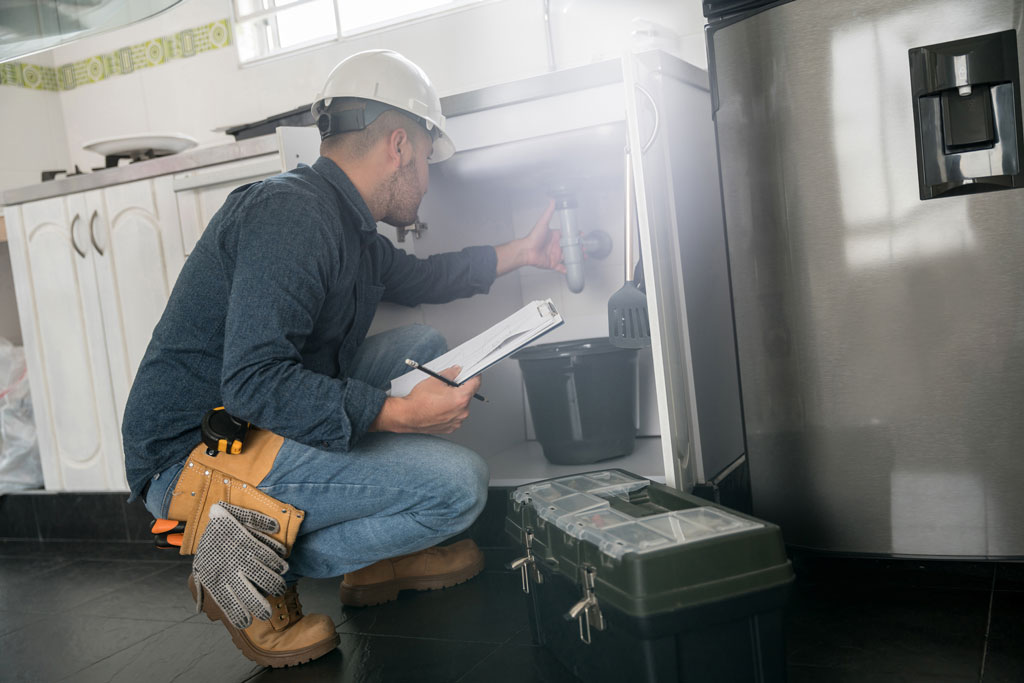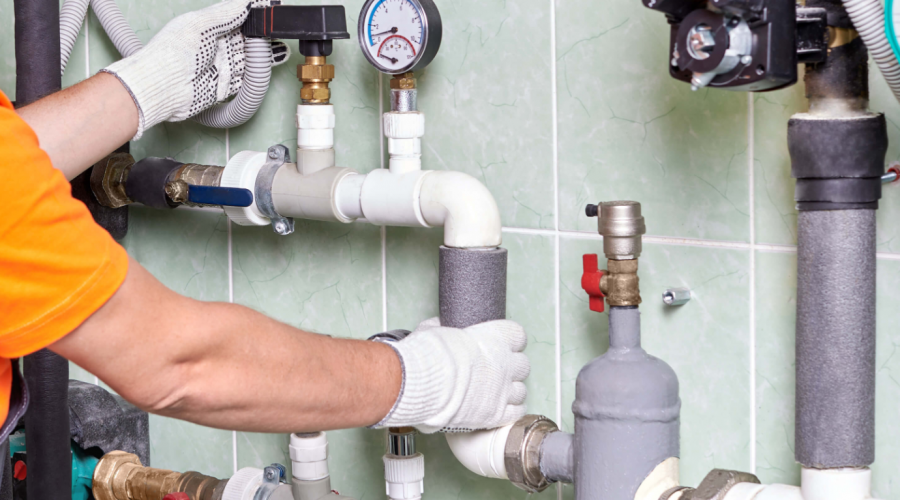Critical Solutions to Use Until Specialist Help Arrives
Critical Solutions to Use Until Specialist Help Arrives
Blog Article
Nearly everybody has got their own opinions about Expert Tips for Managing a Plumbing Emergency Until Help Arrives.

Plumbing emergencies can strike at any moment, causing tension and possible damages to your home. Whether it's a ruptured pipeline, a blocked drain, or a dripping tap, understanding exactly how to manage the situation till an expert plumbing gets here can save you from further complications. This write-up offers important emergency situation pipes tips to aid you alleviate damage and reclaim control throughout a plumbing crisis.
Switch off the Supply Of Water
The initial step in any kind of pipes emergency situation is to turn off the water supply. For local problems, such as a leaking faucet or toilet, switch off the shutoff near the fixture. In the case of a major leakage or ruptured pipe, locate your home's major water shut-off valve and turn it off promptly. Knowing the location of these valves beforehand can save beneficial time during an emergency.
Turn off Your Water Heater
In particular emergencies, such as a burst pipe, it's important to turn off your water heater. This protects against overheating or damage to the device when water stops flowing. Switch off the power supply to the water heater (electrical or gas) and allow it cool to prevent potential threats.
Briefly Quit a Burst Pipe
A ruptured pipeline can cause significant water damages in mins. To reduce the issue:
Call a professional plumbing professional promptly to deal with the problem completely.
Have an Emergency Pipes Set
Prepare a basic pipes emergency situation set to handle small problems effectively. Your set needs to consist of:
Having these tools handy can make a significant difference in your capacity to handle emergency situations.
Unclog Drains Securely.
A clogged drainpipe can be an irritating and untidy concern. Here's just how to tackle it:.
If these techniques do not function, avoid using excessive force, as it may worsen the blockage.
Handle Overflowing Toilets.
An overruning bathroom can trigger immediate mayhem. Here's what you ought to do:.
Address Small Leaks with Temporary Fixes.
Small leaks can quickly become significant troubles if left uncontrolled. Make use of these short-lived solutions till expert assistance arrives:.
While these fixes aren't permanent, they can aid lessen water loss and damage.
Handle Frozen Piping Meticulously.
In colder environments, icy pipes are a common emergency situation. If you think a frozen pipeline:.
Know When to Call an Expert.
While quick fixes can help temporarily, specific plumbing concerns need immediate professional focus. Call a plumbing technician if:.
Immediately getting in touch with a specialist makes sure the issue is solved properly and avoids more problems.
Prevent More Damage.
Taking fast action to lessen damage can conserve you money and time over time. Below's exactly how:.
Verdict.
Pipes emergencies can be frustrating, but with the best understanding and devices, you can manage the circumstance properly until help shows up. By switching off the supply of water, attending to tiny leaks, and using momentary solutions, you can lessen damage and maintain your home safe. Bear in mind, these suggestions are momentary remedies; always speak with an accredited plumber to handle the root cause of the issue. Preparation and quick reasoning are your ideal allies in any kind of pipes emergency situation.
How to Manage a Plumbing Emergency Until Help Arrives
Plumbing emergencies can be stressful, but keeping calm can help minimize damage to your home. Below are steps to handle a plumbing emergency, but always call a plumber for assistance. It’s safest to have a 24/7 emergency plumbing team readily available, so keep their number in your contacts list for easy access.
Shut off the water: Act quickly to turn off the water source during an emergency. For toilets, turn the water valve at the base or behind the commode. For larger emergencies or flooding, turn the main valve in your home clockwise. Turn off the water heater: Prevent damage to your water heater by switching it off after shutting off the main valve. If you have a gas water heater, turn off the gas supply first. Must Open drains and spigots: Even after shutting off the main valve, your pipes may still have water. Reduce potential damage by turning on spigots outside your home and clearing water with the garden hose. Avoid using chemical cleaners during an emergency. Address small leaks: If you find a small leak, use the plumber’s tape or place rags and towels around the pipes to prevent further damage. Inform the plumbers about these leaks upon their arrival. Call for help: Remember to call a plumber as soon as the emergency occurs. An early call can provide initial assistance and help determine if the situation is too dangerous. If professionals or government officials advise you to leave your home during an emergency, listen and prioritize your safety. Plumbing Emergency Examples and Immediate Fixes
Dealing with a plumbing emergency can put enormous stress on homeowners, leaving them uncertain about the steps to take. This detailed guide delivers concise, direct advice for swiftly tackling typical plumbing dilemmas. It includes actionable measures for dealing with everything from burst pipes to toilets that won’t overflow, helping reduce harm and quickly bring back normalcy.
Burst Pipes
Burst pipes result from intense pressure from various causes like freezing temperatures, corrosion, or physical damage that leads to a pipe rupturing.
Solutions:
Immediately shut off the main water supply to halt the flow of water. Drain the remaining water in the system by opening all cold water taps to prevent further damage. For a temporary fix, use a pipe repair clamp or wrap a piece of rubber around the burst section and clamp it tightly with hose clamps. Call a plumber for a permanent fix. Severe Leaks in Faucets or Toilets
Solutions
Locate and close the local shut-off valve to stop the water flow to the leaking fixture. Place a bucket underneath to catch any drips and reduce damage. In the case of a toilet, lift the float in the tank to prevent more water from entering the bowl and turn off the water supply valve. Contact a plumber to address the problem correctly. Leaking Water Heater
Turn off the water supply to the leaking water heater. If it’s electric, switch off the power at the circuit breaker; if it’s gas-powered, turn off the gas valve. Avoid attempting to repair yourself, as this may involve significant danger and complexity. Seek the assistance of a professional plumber who can provide a safe and appropriate resolution. https://www.showtimeplumbingllc.co/expert-tips-for-managing-a-plumbing-emergency-until-help-arrives

I stumbled upon that review about when doing a search on the internet. Sharing is caring. One never knows, you will be helping someone out. Thank-you for your time invested reading it.
Click Here Report this page